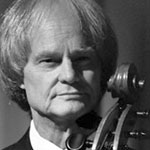Podcasts and Videos
Ibn Arabi and Rumi: Teachings for the Modern World
Ibn Arabi Symposium, Columbia University, New York 2011
Rumi’s Community: Celebrating the Eternal Rumi with Poetry and Music
Coleman Barks

https://www.poetryfoundation.org/poets/coleman-barks [/]
Podcasts by Coleman Barks
Rumi’s Community: Celebrating the Eternal Rumi with Poetry and Music
David Darling

In 1986, Darling joined Young Audiences, an organisation that seeks to educate children about music and the arts through school programs. In the same year, he founded Music for People, which seeks to encourage self-expression through musical improvisation.
In May 2008, he became part of a collaboration of music teacher and performers offering a training program in holistic and intercultural approaches to healing with sound and music at the New York Open Center Sound and Music School.
Podcasts by David Darling
Ibn Arabi and Rumi: Teachings for the Modern World
Rumi’s Community: Celebrating the Eternal Rumi with Poetry and Music
Ibn Arabi and Rumi: Teachings for the Modern World – Panel Discussion
Ibn Arabi’s Vision of the Multiple Oneness of the Inner Human Kingdom
Pablo Beneito

He has been studying the works of Ibn Arabi since he chose to do his doctorate in Arabic philology at the Complutense University of Madrid, after which he spent nine years teaching at the University of Seville in the Department of Arab and Islamic Studies. He has also been a visiting professor at the Sorbonne in Paris (Ecole Pratique des Hauts Etudes), in Kyoto University (ASAFAS) and in Toledo (Escuela de Traductores). As a specialist in Sufi thought, he has given courses throughout the world, and helped organise more than 14 international conferences. He heads MIAS Latina [/], an independent organisation affiliated to the Ibn Arabi Society, for speakers of Spanish, Italian and Portuguese.
He has edited and translated (into Spanish) Ibn Arabi’s Mashahid al-asrar and Kashf al-ma’na. He is currently working on several of Ibn Arabi’s shorter treatises, including Kitab al-Abadilah.
Together with Stephen Hirtenstein he translated The Seven Days of the Heart - Ibn ʿArabi's Awrad al-usbu (Wird), and togther with Cecilia Twinch, Contemplation of the Holy Mysteries - Mashahid al-asrar al-qudsiyya.
Articles by Pablo Beneito
On the Divine Love of Beauty (PDF)
The Presence of Superlative Compassion
La Presencia De La Compasión Superlativa (Spanish)
The Servant of the Loving One – On the Adoption of the Character Traits of al-Wadud
The Time of Deeds and the Time of Spiritual Knowledge
The Prayer of Blessing [upon the Light of Muhammad] by Abd al-Aziz al-Mahdawi: Part 1, the Introduction; with Stephen Hirtenstein
The Prayer of Blessing [upon the Light of Muhammad] by Abd al-Aziz al-Mahdawi: Part 2, the Translation; with Stephen Hirtenstein
Podcasts and Videos by Pablo Beneito
Qurrat al-‘Ayn: the Maiden of the Ka‘ba
Ibn Arabi’s Vision of the Multiple Oneness of the Inner Human Kingdom
Past and Future of Knowledge: the Time of Gnosis in Ibn Arabi’s Writings
On the Spiritual Typologies in Ibn Arabi’s Kitab al-Abadilah
Ibn Arabi’s Lyric Mysticism and the Persian-Arabic Love Affair
Michael Sells

Articles by Michael Sells
Ibn Arabi’s Poem 18 (Qif bi l-Manazil) from the Translation of Desires
Selections from Ibn Arabi’s Tarjuman al-ashwaq (Translation of Desires)
Podcasts and Videos by Michael Sells
Bewildered – A New Translation of Ibn Arabi’s Tarjuman Poems
Selected Readings from the Poetry of Ibn Arabi
Life in Ibn Arabi’s “Ringsetting of Prophecy in the Word of Jesus”
Ibn Arabi's Lyric Mysticism and the Persian-Arabic Love Affair
The Poetry of Ibn Arabi – Recitations from the Tarjuman al-ashwaq
How Sweetly with a Kiss Is the Speech Interrupted
Fatemeh Keshavarz

Podcasts by Fatemeh Keshavarz
How Sweetly with a Kiss Is the Speech Interrupted: The Dynamism of Silence in Rumi’s Lyric Poetry
Recitation of Rumi’s Poetry in Persian and English
Interview: Ibn Arabi and Rumi: Teachings for the Modern World
“We Sucked Milk From Two Mothers”
Mahmud Erol Kiliç

Together with Dr. Abdurrahim Alkış Dr Kiliç published Muhyiddin İbn Arabi, Fusûsu’l-hikem, Tahkik ve Tıpkıbasım in 2016 (Litera Yay., İstanbul), a critical edition of the Fusus al-Hikam, based on the manuscript copied by Saduddin Qunawi, which is the oldest known manuscript of the Fusus, including a sama' by Ibn 'Arabi. The book also has a facsimile copy of that manuscript.
Podcasts and Videos by Mahmud Erol Kiliç
“We Sucked Milk From Two Mothers” – Ibn Arabi and Rumi as Co-founders of Ottoman Sufi Thought
Recitation of Rumi’s Poetry in Persian and English
Fatemeh Keshavarz

Podcasts by Fatemeh Keshavarz
How Sweetly with a Kiss Is the Speech Interrupted: The Dynamism of Silence in Rumi’s Lyric Poetry
Recitation of Rumi’s Poetry in Persian and English
Interview: Ibn Arabi and Rumi: Teachings for the Modern World
Becoming Real: Realization and Revelation in Rumi and Ibn Arabi
James Winston Morris

His publications include: Openings:From the Qur’an to the Islamic Humanities (forthcoming); Approaching Ibn ‘Arabi : Foundations, Contexts, Interpretations (forthcoming); Ma‘rifat ar-Rūh in Nur Ali Elahi's Knowing the Spirit (2007), and The Reflective Heart: Discovering Spiritual Intelligence in Ibn ‘Arabī’s "Meccan Illuminations"(2005).
Articles by James W. Morris
Introduction to The Meccan Revelations
Ibn ‘Arabi’s “Short Course” on Love
How to Study the Futuhat: Ibn Arabi’s Own Advice
Hur Man Studerar Futuhat: Ibn Arabis Egna Råd (Swedish)
Ibn Arabi: Spiritual Practice and Other Translations – Overview of the ten following articles:
Some Dreams of Ibn Arabi (PDF)
Introducing Ibn Arabi’s “Book of Spiritual Advice” (PDF)
“Book of the Quintessence of What is Indispensable for the Spiritual Seeker” (PDF)
Ibn Arabi on the Barzakh – Chapter 63 of the Futuhat (PDF)
The Spiritual Ascension: Ibn Arabi and the miraj – Chapter 367 of the Futuhat (PDF)
The Mahdi and His Helpers – Chapter 366 of the Futuhat (PDF)
Ibn Arabi’s ‘Esotericism’: The Problem of Spiritual Authority (PDF)
Communication and Spiritual Pedagogy: Methods of Investigation (tahqiq) (PDF)
Rhetoric & Realisation in Ibn Arabi: How Can We Communicate Meanings Today? (PDF)
Listening for God: Prayer and the Heart in the Futuhat | Part 1
Listening for God: Prayer and the Heart in the Futuhat | Part 2
Listening for God: Prayer and the Heart in the Futuhat | Part 3
Listening for God: Prayer and the Heart in the Futuhat | Part 4
Divine Calling, Human Response – Scripture and Realization in the Meccan Illuminations | Part 1
Divine Calling, Human Response – Scripture and Realization in the Meccan Illuminations | Part 2
Opening the Heart: Ibn Arabi on Suffering, Compassion and Atonement
Ibn Arabi and his Interpreters – Overview of 28 articles and reviews in this section
Ibn ‘Arabi and his Interpreters I – Four overviews, description of the following:
Ibn Arabi; in the “Far West” (PDF)
Except His Face: The Political and Aesthetic Dimensions of Ibn Arabi’s Legacy (PDF)
Situating Islamic ‘Mysticism’ (PDF)
Ibn Arabi and His Interpreters — Grouping I:
Overviews
Ibn Arabi; in the “Far West” (PDF)
Except His Face: The Political and Aesthetic Dimensions of Ibn Arabi’s Legacy (PDF)
Situating Islamic ‘Mysticism’ (PDF)
“Ibn Arabi and His Interpreters”, JAOS article 1986 (PDF) | Part 1 | Part 2 | Part 3 | Part 1 (HTML)
Theophany or “Pantheism” – The Importance of Balyani’s Risalat al-Ahadiya
The Continuing Relevance of Qaysari’s Thought: Divine Imagination and the Foundation of Natural Spirituality
Review: La destinée de l’homme selon Avicenne: Le retour à Dieu (maad) et l’imagination by Jean Michot
Review: Kitab al-inbah ‘ala Tariq Allah de ‘Abdallah Badr al-Habashi
Review: La Risala de Safi al-Din ibn Abi l-Mansur ibn Zafir
Review: Manjhan, Madhumalati: An Indian Sufi Romance
Review: Mirror of the Intellect: Essays on Traditional Science and Sacred Art
An Arab “Machiavelli”? – Rhetoric, Philosophy and Politics in Ibn Khaldun’s Critique of “Sufism”
Review: Islamic Mysticism Contested: Thirteen Centuries of Controversies and Polemics
Review: Ibn Arabi and the Later Islamic Tradition: The Making of a Polemical Image in Medieval Islam
Review: Theodicy in Islamic Thought: The Dispute over al-Ghazali’s “Best of All Possible Worlds”
Ibn Masarra: A Reconsideration of the Primary Sources (PDF)
Podcasts and Videos by James W. Morris
Beyond Belief: Ibn ‘Arabi on the Perennial Challenges of Realization
“As for your Lord’s blessings, recount them!”: Ibn ‘Arabi’s Storytelling and Spiritual Communication
Becoming Real: Realization and Revelation in Rumi and Ibn Arabi
Whose calling, whose response? Ibn 'Arabi on Divine and Human Responsiveness
Opening the heart in the Futuhat
Recitation of Ibn Arabi’s Poetry in Arabic and English
Ahmed Eissawi

Podcasts by Ahmed Eissawi
Aaron Cass

Aaron studied Ibn Arabi and Rumi, amongst others, at the Beshara School in Scotland, where he was both a student and correlator.
Articles by Aaron Cass
Podcasts by Aaron Cass
Recitation of Ibn Arabi’s Poetry in Arabic and English
The Poetry of Ibn Arabi – Recitations from the Tarjuman al-ashwaq
Pre-conference Interview with Majid Ali on WBAI Radio
Fatemeh Keshavarz

Podcasts by Fatemeh Keshavarz
How Sweetly with a Kiss Is the Speech Interrupted: The Dynamism of Silence in Rumi’s Lyric Poetry
Recitation of Rumi’s Poetry in Persian and English
Interview: Ibn Arabi and Rumi: Teachings for the Modern World
Pre-conference Interviews with Aracely Brown on WBAI Radio
David Darling

In 1986, Darling joined Young Audiences, an organisation that seeks to educate children about music and the arts through school programs. In the same year, he founded Music for People, which seeks to encourage self-expression through musical improvisation.
In May 2008, he became part of a collaboration of music teacher and performers offering a training program in holistic and intercultural approaches to healing with sound and music at the New York Open Center Sound and Music School.
Podcasts by David Darling
Ibn Arabi and Rumi: Teachings for the Modern World
Rumi’s Community: Celebrating the Eternal Rumi with Poetry and Music
Nikos Yiangou

Podcasts by Nikos Yiangou
Ibn Arabi and Rumi: Teachings for the Modern World
Pre-conference Interviews with Aracely Brown on WBAI Radio
Michael Sells

Articles by Michael Sells
Ibn Arabi’s Poem 18 (Qif bi l-Manazil) from the Translation of Desires
Selections from Ibn Arabi’s Tarjuman al-ashwaq (Translation of Desires)
Podcasts and Videos by Michael Sells
Bewildered – A New Translation of Ibn Arabi’s Tarjuman Poems
Selected Readings from the Poetry of Ibn Arabi
Life in Ibn Arabi’s “Ringsetting of Prophecy in the Word of Jesus”
Ibn Arabi's Lyric Mysticism and the Persian-Arabic Love Affair
The Poetry of Ibn Arabi – Recitations from the Tarjuman al-ashwaq
Nargis Virani
 Nargis Virani is Assistant Professor of Arabic at The New School, University Liberal Studies in New York. She received her PhD in 1999 in Arabic and Islamic Studies from Harvard University. She studied the Quran with the Shaykh of al-Azhar Mosque in Cairo and holds a shahadah (certificate) and an ijazah (permission to teach the Quran). Her doctoral dissertation, entitled I am the Nightingale of the Merciful Macaronic or Upside Down?, analyzed the mulammaat, the mixed-language poems, in Rumi’s Diwan and she is currently converting this into a book which will also include a translation into English of all of Rumi’s multilingual verses in Arabic, Persian, Turkish, Greek and Armenian. Dr Virani’s second book project is tentatively entitled Quran in Muslim Literary Memory.
Nargis Virani is Assistant Professor of Arabic at The New School, University Liberal Studies in New York. She received her PhD in 1999 in Arabic and Islamic Studies from Harvard University. She studied the Quran with the Shaykh of al-Azhar Mosque in Cairo and holds a shahadah (certificate) and an ijazah (permission to teach the Quran). Her doctoral dissertation, entitled I am the Nightingale of the Merciful Macaronic or Upside Down?, analyzed the mulammaat, the mixed-language poems, in Rumi’s Diwan and she is currently converting this into a book which will also include a translation into English of all of Rumi’s multilingual verses in Arabic, Persian, Turkish, Greek and Armenian. Dr Virani’s second book project is tentatively entitled Quran in Muslim Literary Memory.
Podcasts by Nargis Virani
“A Donkey’s Tail With Angel’s Wings”: Being Fully Human According to Rumi
